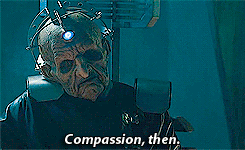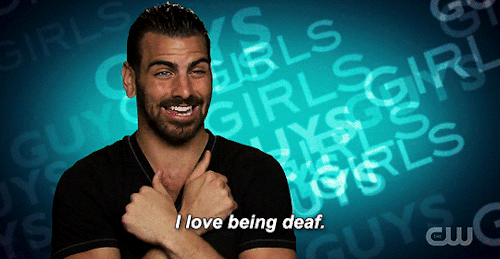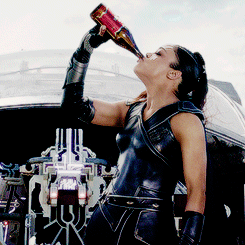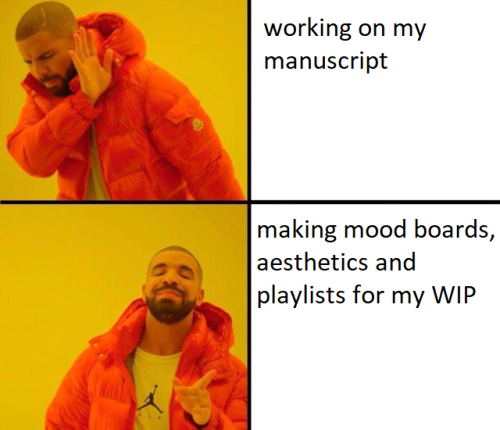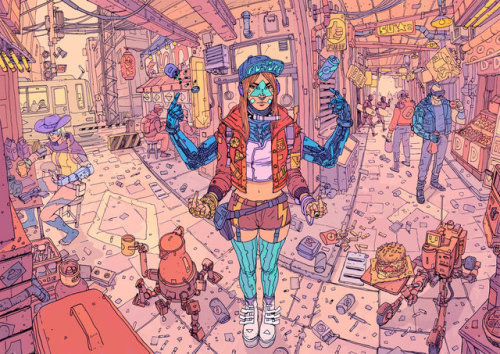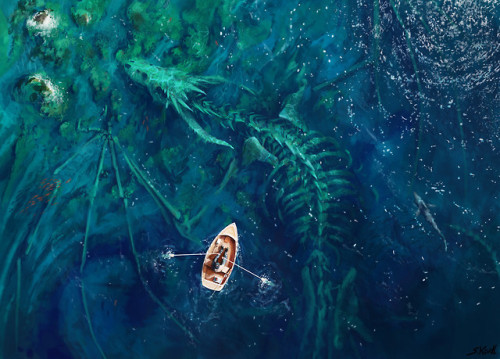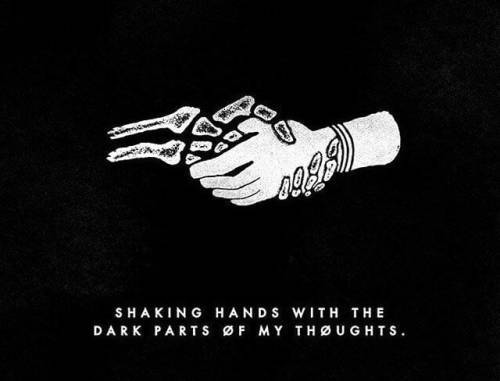Katherine Frances's Blog, page 65
March 12, 2018
On Writing Disabled Characters as Antagonists
Many of you will know by now that, as a queer Deaf writer, I’m a huge advocate of positive representation for all disabled and othered characters. Something I haven’t touched on as much is my belief that you can only give truly positive representation by placing disabled/othered characters in all roles, even the traditionally negative ones. @itisariddle asked me a question relating to this matter this morning, and I realised that it’s the perfect topic for a new “On Writing” post.
Art, wait! I can’t show a disabled character as bad!
With all of the discourse on tumblr, and the rising need for political
correctness, the thought of showing disabled/othered characters as
anything but saints is terrifying. This vein of thought, however well meant, is almost as bad as toxic representation itself. It leads to some very 2D characters, and far more focus on the disability than necessary.
While having a disability usually means close ties to a community,
culture, or even language, disabled characters are still people.
When you look at what people are like in general - removing any other factors - you find that we’re a very complex lot, capable of swinging between good, bad and everything else in between. Having a disability doesn’t negate human nature, and so it stands to reason that for every hundred understanding, community-minded disabled people, there are going to be a few who are nasty, outright bullies.Having attended a pre-school programme for disabled children, I can tell you now, there were plenty of children in there who had the capability to be spiteful. A few of them followed me up through school (joys of a small town), and they continued to be people you didn’t want to be around. Their personalities didn’t care that they were Deaf, or visually impaired, or had auditory processing disorders - they developed regardless, and this reality should carry over into fiction.
But that isn’t to say you can villify a disabled community.There are a few tropes that are definitely bad, even toxic, representation, and oftentimes people use them without realising. I did it too. Here are the top three that I notice the most, so that you can identify and avoid or correct them:
Justification (or “anything for a cure”)
This trope stems from the old trick of making readers sympathise with a villain by giving them a “good reason” for their villainy. They only became a terrible person and did terrible things because they wanted a cure, and no longer cared for who they hurt. Society couldn’t help them. They just wanted to be like everyone else.
Justification is a trope more commonly found in allegory format: a
character who is dying from a terminal or chronic condition becomes a
villain to find a cure. Nonetheless, the connotations carry over and
impact disabled communities as well.The most harmful part of this trope is the idea that a character does awful things in order to be “normal”. Again, as with many similar tropes, it’s well intentioned - often a commentary by abled authors who want to make a statement on the way that society pressures minority/othered groups - but achieves the opposite effect. Many disabled/othered communities consider whatever they have as a blessing, and only use medical intervention insofar as to make their lives manageable, and overcome obstacles, combined with their own resilience. Making a disabled character a villain in their search for a cure is toxic and plain cheap. It doesn’t represent our real-life views at all.
Zero to Hero (or “nobody liked me so I took this power and now I’m evil”)
Character who is othered (or disabled) is shunned by others and, desperate to fit in, seizes whatever shady offer or mysterious power comes their way in order to become popular and successful.
My first issue with this trope is similar to the one above: it cuts out the culture and/or community around the disability. While it is true that being “different” is isolating (higher rates of depression and anxiety are common), it’s also true that there is a huge community-oriented attitude amongst disabled people. Pretending otherwise is exploiting a disability for tragic purposes, which is bad.
My second big issue is the insinuation that having a disability is a weakness. If you’re abled, or deal with internalised ableism (which I think loads of us do) we might not see it at first glance, but looking over the trope again from the tragic exploitation angle, you realise that the character is shown as the outsider. Think of it in terms of the sheep who lags behind the herd, and so becomes easy prey for the wolf.
Thirdly, the insinuation that disabled people are incapable of having love, genuine relationships, friends, or being happy in general, and so have to do terrible things. All round, this trope is almost the one that irks me the most.
Vengeance (or “the disabled teen-angst Macbeth”)
Disabled/othered character comes into posession of huge power and immediately uses it to get revenge on everyone they feel has wronged them, becoming infatuated with power and eventually being their own undoing. But it’s okay, because they’ve been shunned and misunderstood.
A lot of the issues with this one are the same as with the Zero to Hero trope, but it takes the spot as the trope I hate the most because it’s such a flagrant exploitation of struggles with mental health, disabilities and other issues. Again, it’s the idea that disabled people are incapable of experiencing happiness, except it’s less of an insinuation and more of a blaring, bright red marker stain.
All of these tropes strip away any characterisation and focus solely on the disability. You could probably replace one of these trope-driven characters with an evil AI hearing aid, which would be way more interesting, and the story would still be the same.
Think person first, and then weave the disability into their character afterwards. It’s kind of a given, I think, but many writers disregard this entirely. A character is a character, and a person is a person, and any character should be created like that. Think about hobbies, flaws, nuances, likes, dislikes, goals, passions - and treat the disability like an integrated layer, so to speak. Do your research into the community, its beliefs, preferences, and struggles faced, but keep all of it mixed in with the characterisation as a whole.
To Avoid Harm, Keep the BalanceBalancing is a really important part of positive representation. If you’re going to have an evil PoC character, have a good one; if you’re going to have an incredibly skilled disabled athelete, have an abled one, too; gay villain, gay hero; evil woman, good woman.
My favourite example of balancing from recent media is Hela and Valkyrie in Thor: Ragnarok (I finally got to watch it yesterday, and I’m still smitten with everything about it). Valkyrie is fully-fleshed out and morally questionable, but in the end she’s a good person; Hela, on the other hand, is evil - but her evilness has nothing to do with her being a woman, just as a disabled antagonist’s antagonism should be nothing to do with their disability. Instead, Hela wants the throne because she believes it is her birthright and is unable to see the error of her ways.
The key point in the balancing is that they’re both very powerful female figures in a male-dominated film franchise, and by having these two characters - both of whom are flawed, complex and flesh-out - positive representation has been given all round. The bad in Hela accentuates the good in Valkyrie, and at the end, the protag walks away on the good side while the antag gets annhilated in a big, fiery ball of smoke, leaving no doubt in the mind of the audience which of the two women is the better representation.
In Summary:
Don’t think in terms of disability only
remember that human nature is very complex
avoid disability-centric trope-driven characters
develop characters outside of the tropes, if you use them
balance good and evil
leave no doubt in the minds of your audience as to which character is the better representative of the community as a whole
and
Avoid the whole “imperfect body = imperfect morals” crapThank you for reading, and I hope that this helps! If you have any questions about this, or want to discuss an aspect/make suggestions, don’t be afraid to drop an ask in my inbox. All writing advice is subject to opinion, and I’m open to other’s views on topics like these, as long as you are respectful and reasonable.
This has been another installment of my “On Writing” series: an ongoing series of long(ish) advice posts on all sorts of writing and craft-related topics. Stay tuned for more, and if you have questions on anything else in the meantime, drop me an ask!
ʕ•ᴥ•ʔノ♡
When the coffee runs out before the writing session ends:
pagewoman:
Highland cattle, Glencoe, Scottish Highlands
March 11, 2018
–[x]
pagewoman:
Bonar Bridge, Kyle of Sutherland, Creich, Scottish...
"There is no reality except the one contained within us. That is why so many people live such an..."
- Hermann Hesse, Steppenwolf (featured in our 15-book giveaway)
st-just:
Dragon Bones by
Stefan Koidl
March 10, 2018
givethispromptatry:“You know what? This is the third fucking time you’ve stabbed me! You aren’t...
“You know what? This is the third fucking time you’ve stabbed me! You aren’t getting this knife back. It’s mine now.”

